CATEGORIES
Categorías

Short Term Food Relief Does Not Fill Up B12 Stores
During the period when children were provided with food relief, their B12 levels increased, before decreasing considerably once we stopped the programme.
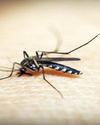
Increased Dengue Cases: Prevention, Vaccination & Treatment
Dengue cases are growing rapidly around the world; more than half of the global population is now under risk.

Diet Plays Key Role In ADHD Symptoms In Children
Here's a good reason for children with attention deficit hyperactivity disorder (ADHD) to eat their fruits and vegetables: It may help reduce inattention issues, a new study suggests.

How Eating Eggs Can Boost Heart Health
Researchers have shown how moderate egg consumption can increase the amount of heart-healthy metabolites in the blood, publishing their results today in eLife.

5G network Technology
Some major Indian cities are expected to get 5G network by the end of 2022, something which the Department of Telecommunications (DoT) confirmed in 2021. In India, only 13 metro cities will first get to experience 5G services this year.
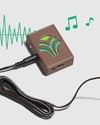
Listening to plants
Plants of any type have always been an integral part of human life since time immortal.
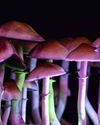
Magic mushroom found in the dense forests of Australia
A unique species of magic mushroom has been discovered in the dense forests of Australia.
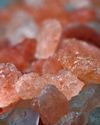
Microorganisms, Perhaps Still Alive, Discovered In 830-Million-Year-Old Rock Salt
Scientists used a selection of imaging techniques to discover well-preserved organic solids locked within fluid inclusions embedded in an ancient piece of rock salt, as known as halite.
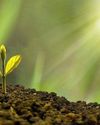
Plants grown on the soil of the moon for the first time
Creating a human colony on the moon can now be easy.
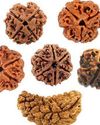
Significance of Rudraksha
Elaeocarpus Ganitrus Or Rudraksha is an evergreen traditional medicinal Plant that is commonly found in South East Asia.
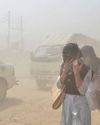
Indoor Air Pollution in India & Its Neglected Outcomes
Certainly, air pollution remained most serious health Cthreat globally for decades. It has caused substantial harm to human health, nature (environment) and economy.
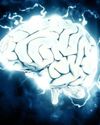
How The Human Brain Separates, Stores, And Retrieves Memories
Researchers have identified two types of cells in our brains that are involved in organizing discrete memories based on when they occurred. This finding improves our understanding of how the human brain forms memories and could have implications in memory disorders such as Alzheimer's disease.
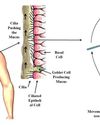
Scientific Principle Of Beneficial Effects Of Yoga Practices In Covid19
A virus is a sub-microscopic infectious particle that replicates only inside the living cells of an organism. Viruses are present almost everywhere and all living creatures including humans are getting infected with them on daily basis.
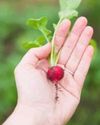
Biosensors: A New Era of Agriculture
The use of biosensors in agriculture has been a major development of human civilization, including the production of crops and raising livestock to achieve people's sustainable goals for food.

How Many Nuclear Warhead Exist, And Who Has Them?
Since Russia first invaded Ukraine nearly three weeks ago, the threat of nuclear weapon use has risen. The bombs get their energy from either splitting atoms or joining the tiny particles inside the atoms together.

Good News For Coffee Lovers: Daily Coffee May Benefit The Heart
Drinking coffee particularly two to three cups a day is not only associated with a lower risk of heart disease and dangerous heart rhythms but also with living longer, according to studies being presented at the American College of Cardiology's 71st Annual Scientific Session.
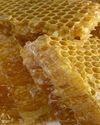
5 Ancient Indian Foods Still Eaten Today
From Ladoo to saag, Insian ancient ancestors were consuming some of our favorite foods well before we may have realized.
Silicon for the sustainable agriculture
Silicon, a metalloid with bluish-grey metallic shine, is known for its semiconductor properties. Since silicon is being widely used for computers and many other semiconductor-based devices, many technological hubs worldwide received the name like Silicon Valley.
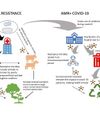
Antimicrobial Resistance In Post-Pandemic Era
Over the years microorganisms have developed Oresistance to antibiotics, antifungals, antivirals, antimalarials, and anthelmintics by a phenomenon known as antimicrobial resistance (AMR).

Top 10 Science Stories Of 2021
Thrilling Science and technology discoveries, hurdles in the fight against Covid and Tadvancements in space exploration defined the past year

Non-antibiotic growth promoter for monogastric farm animals
Feed additives assist in boosting the monogastric Fanimal immune system through maintaining homeostasis of the gastrointestinal tract. The gastrointestinal tract is a vital immune organ that encompasses roughly 70% of the total immune cells of the body. Apart from the above, feed additives regulate gut flora, reduce weaning stress and other environmental challenges on piglets and pigs respectively.

Warm milk at bed time help you fall asleep
When heading to bed, people often do a variety of rituals to help Wthem prepare for a restful night's sleep, such as taking a warm bath or doing nighttime yoga.

Nuclear Power Plant at Moon
Electricity has revolutionized the world like nothing ever has, and it's impossible for humanity to imagine a life on Earth without it. Now, if we could generate electricity in space that can revolutionize the space travel as well as living on other destinations than earth.

Microgreens: A nutrient-dense food for improved health and well-being
In recent years, the attention towards microgreens is increasing due to the rise in public awareness of healthy eating worldwide. “Microgreens" are a young, immature, and tender edible seedling of edible plants harvested at 2-5 inches tall, 6 to 15 days post sowing when the cotyledonary leaves start to emerge or just before the fully developed first true leaves.

Global Warming: Biggest Menace to Our Existence!
If someone is truly worried about the fate of the world, it would be a climate scientist. After testing all his climate theories, when he would look at the world, he would see only devastation in the future.

Atom's energy can keep the world powered and the Nature calm
Humanity would never wish to face calamities, at the same time it won't choose to live in darkness either. But, I am afraid we are well on our way to one of these.

4-Fluorouridine is an oral antiviral that blocks SARS-CoV-2 replication
According to a research paper published in science journal, 4′fluorouridine (4′-FlU, EIDD-2749), a ribonucleoside analog that inhibits RSV, related RNA viruses, and SARSCoV-2 with high selectivity index in cells and human airway epithelia organoids.

Bedtime Linked With Heart Health
Going to sleep between 10:00 and 11:00 pm is associated with a lower risk of developing heart disease.

Mushroom Consumption May Lower Risk Of Depression
Mushrooms have been making headlines due to their many health advantages. Not only do they lower one's risk of cancer and premature death, but new research led by Penn State College of Medicine also reveals that these superfoods may benefit a person's mental health.

Visiting Viruses
Are viruses good or bad? Should we really visit one? AWell, given the present times, the instant answer would be: viruses are bad and there is definitely no need to visit them. There is a reason why we are urgently following social distancing. The evidence? SARS-CoV-2, of course! We all know that this virus causes the novel coronavirus disease, wreaking havoc across the world since the end of 2019. It has turned our lives upside down because of its rapid infection spree. Not only COVID-19, but viruses also cause illnesses like Ebola, smallpox, influenza, SARS, MERS, and dengue. But, did you know that if it was not for some viruses, there would be no humans? They probably played a crucial role in human evolution. For the last few years, scientists around the world have been exploring these agents of change to unravel several mysteries associated with them.